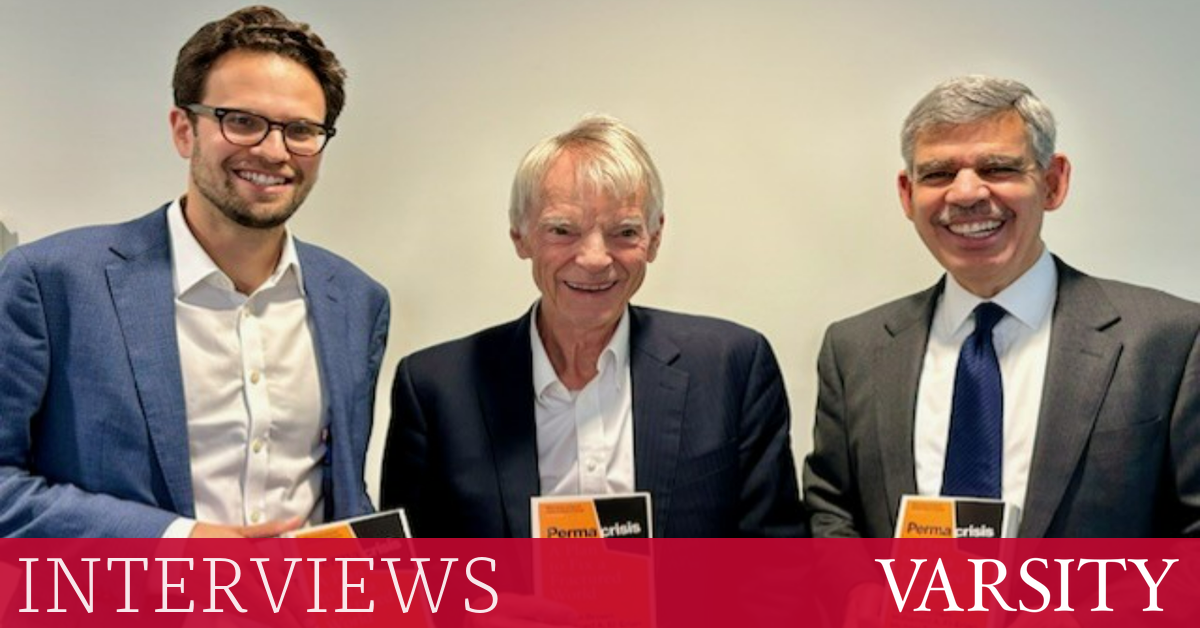

Former Prime Minister Gordon Brown, Queens’ College President and economic advisor Mohamed A. El-Erian, Nobel Prize-winning economist Michael Spence, and former Executive Officer to the Mayor of Los Angeles Reid Lidow discuss their book 'Permacrisis: A Plan to Fix a Fractured World' and propose a new growth model emphasizing inclusivity and environmental sustainability through global cooperation. They believe that the trend towards nationalism can be attributed to globalization leaving many people behind, and their solution is inclusive growth. They also emphasize the importance of innovation, both within higher education and outside, and the need to dispel the stigma around certain professions. The authors argue that economic solutions can address cultural issues, but skepticism remains. They believe that increased global cooperation and trust in international monetary organizations can turn things around. The aim of their book is to help people make fewer mistakes and dispel negative fatalism.
The Financial Times has published an article titled 'Permacrisis - a blueprint for global governance' [17513dde]. The article discusses the concept of 'permacrisis' and its implications for global governance. The author argues that the world is facing a series of interconnected crises that require a new approach to governance. The article suggests that traditional models of governance are ill-equipped to address these complex challenges and proposes a new framework based on resilience, adaptability, and sustainability.
The article highlights the need for a more inclusive and collaborative approach to global governance, involving not only governments but also businesses, civil society, and individuals. It emphasizes the importance of long-term thinking and the need to prioritize the well-being of future generations.
The article also mentions the subscription options available to readers of the Financial Times. Standard Digital provides access to a wealth of global news, analysis, and expert opinion, while Premium Digital includes access to the premier business column, Lex, as well as 15 curated newsletters covering key business themes with original, in-depth reporting. Readers can change their subscription plan at any time online in the 'Settings & Account' section. To retain premium access and save 20%, readers can opt to pay annually at the end of the trial period. Any changes made will become effective at the end of the trial period, allowing readers to retain full access for four weeks, even if they downgrade or cancel their subscription.
The article concludes by encouraging readers to take advantage of the trial period and consider the annual payment option, which offers a discount and allows full access for four weeks, even if the subscription is downgraded or canceled. The Financial Times provides a link to a full comparison of the Standard and Premium Digital plans.
In summary, the book 'Permacrisis: A Plan to Fix a Fractured World' proposes a new growth model emphasizing inclusivity and environmental sustainability through global cooperation. The authors argue that increased global cooperation and trust in international monetary organizations can address the trend towards nationalism and turn things around. The Financial Times article discusses the concept of 'permacrisis' and its implications for global governance, proposing a new framework based on resilience, adaptability, and sustainability. It also highlights the subscription options available to readers of the Financial Times and encourages them to consider the annual payment option for full access to the publication's content. [fc429cb3] [17513dde]